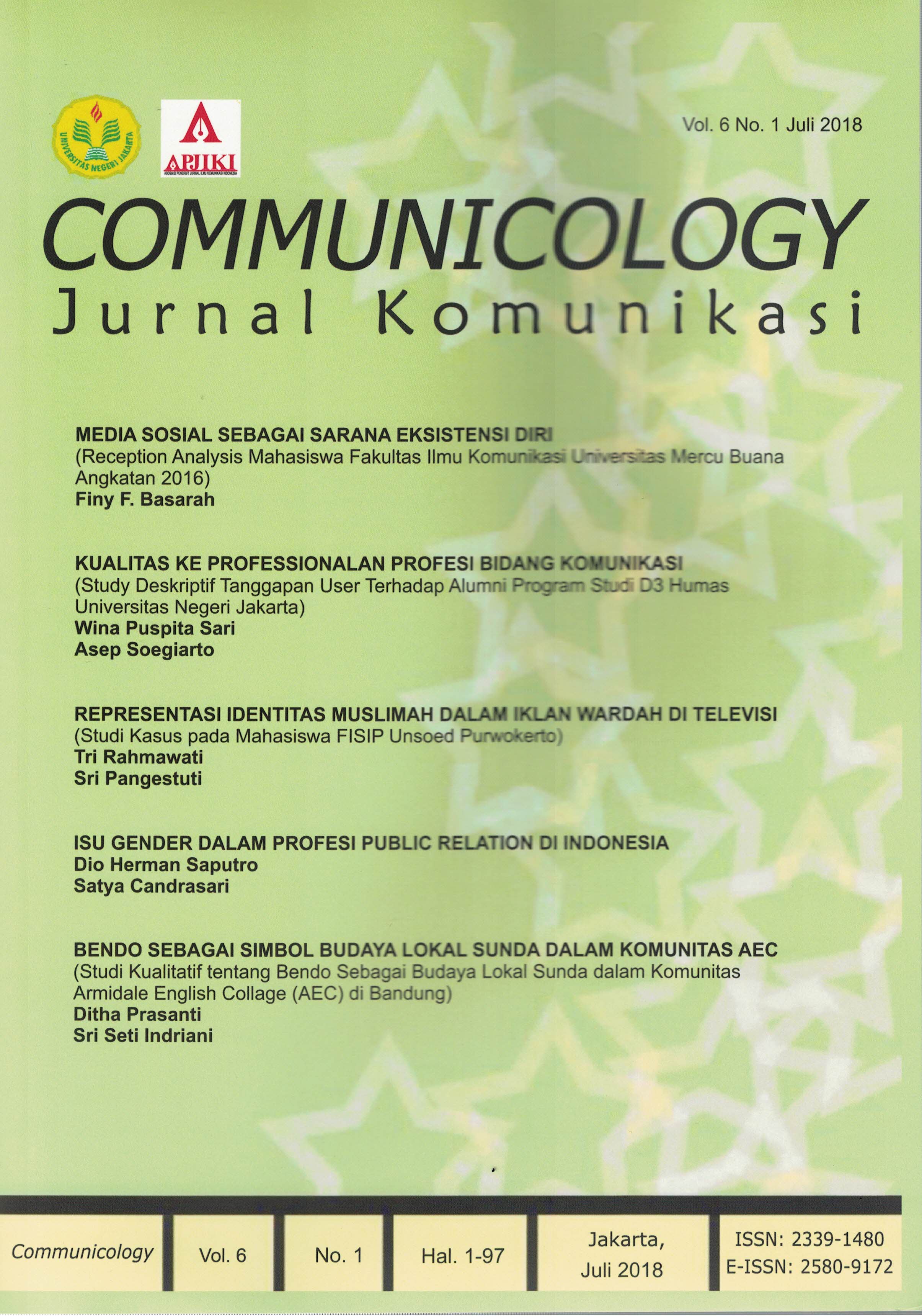REPRESENTASI IDENTITAS MUSLIMAH DALAM IKLAN WARDAH DI TELEVISI
(Studi Kasus Pada Mahasiswa Fisip Unsoed Purwokerto)
DOI:
https://doi.org/10.21009/Communicology.06.03Kata Kunci:
television, wardah, advertising, reception analysis, meaningAbstrak
The role of women in Wardah adverstisments on television is described as independent through activities such as work and study. Through the hijab, make-up, and women's roles Wardah tries to present the identity of contemporary Muslim women, not rigid and remain in accordance with the Shari'a. This study uses qualitative methods with data collection techniques using focus group discussions (FGD) and in-depth interviews. To analyze the data using the reception analysis. The results of the research indicate that each informant is different in receiving and interpreting the message. This difference of meaning is the result of different socio-cultural backgrounds. The meaning of informants is grouped into three categories of meaning according to Hall namely, dominant reading, negiotiated reading, and oppositional reading. There were two informants belonging to the dominant reading group in which the informant agreed in general about the popular Islamic culture. In the negotiated reading group there were four informants. In general, informants received a popular Islamic culture that was featured on Wardah's advertisements, however, the informants adapted to their preferences. In the oppositional reading position there is only one informant who meets the criteria because the informant rejects the message of popular Islamic culture because of his incompatibility on understanding the religious rules held tightly by the informant. Muslim students of FISIP Unsoed generally receive a message of representation of Muslim women's identity seen from aspects of role, dress, and makeup based on socio-cultural background.
Unduhan
Diterbitkan
Cara Mengutip
Terbitan
Bagian
Lisensi
Authors who publish with this Journal agree to the following terms:
- Author retain copyright and grant the journal right of first publication with the work simultaneously licensed under a creative commons attribution licensethat allow others to share the work within an acknowledgement of the work’s authorship and initial publication of this journal.
- Authors are able to enter into separate, additional contractual arrangementfor the non-exclusive distribution of the journal’s published version of the work (e.g. acknowledgement of its initial publication in this journal).
- Authors are permitted and encouraged to post their work online(e.g. in institutional repositories or on their websites) prior to and during the submission process, as it can lead to productive exchanges, as well as earlier and greater citation of published works.
Users/public use of this website will be licensed to CC BY





